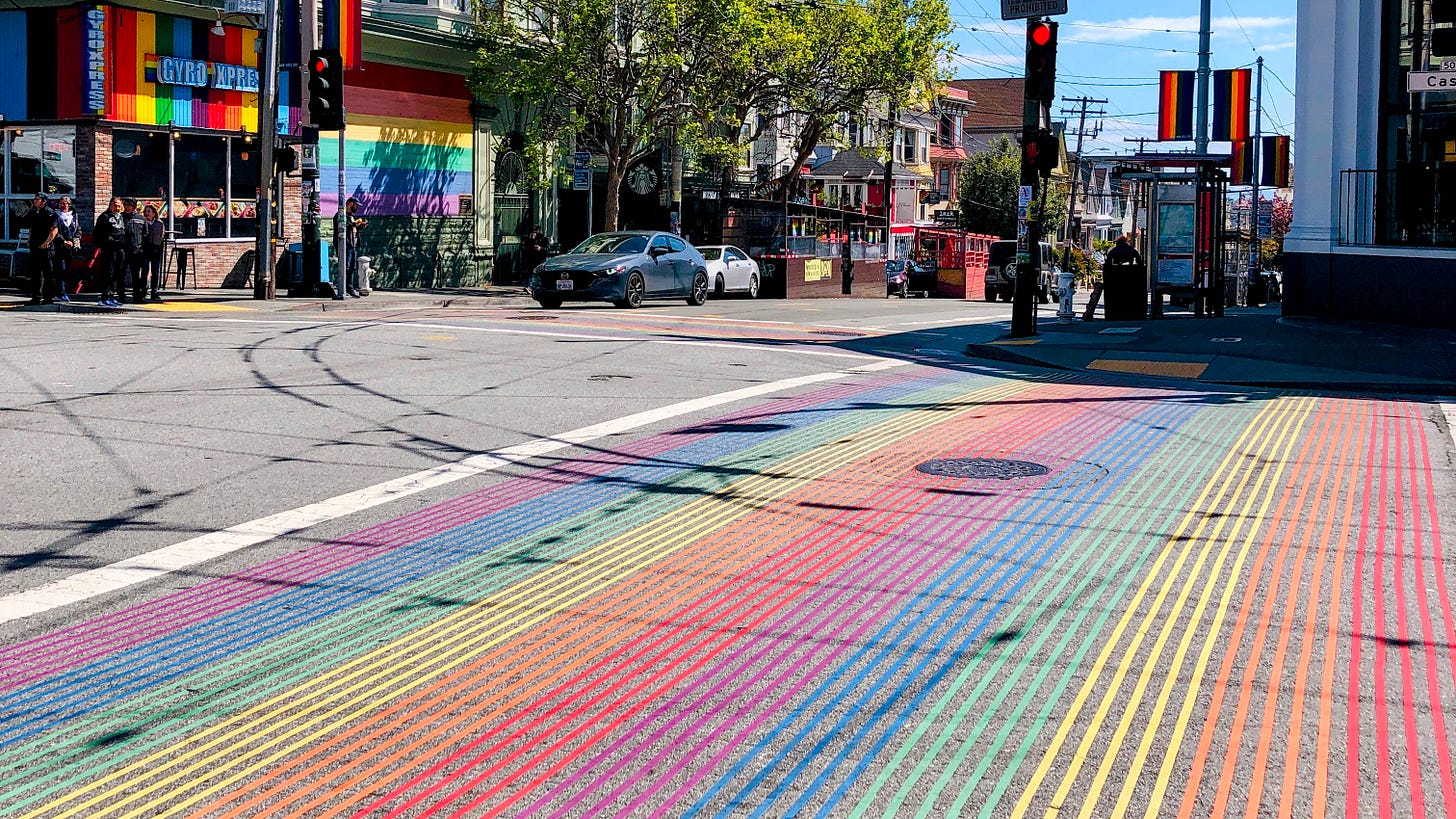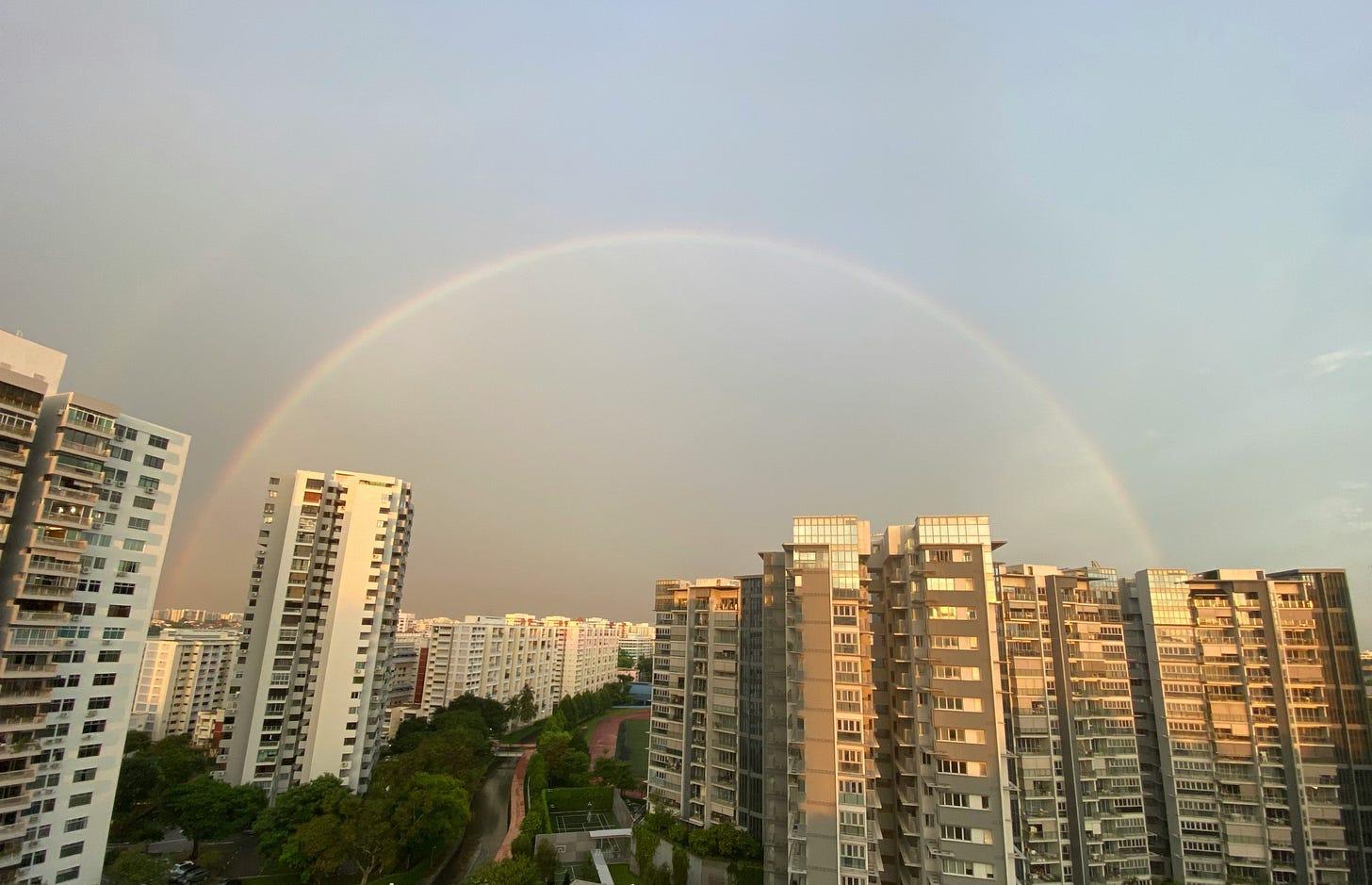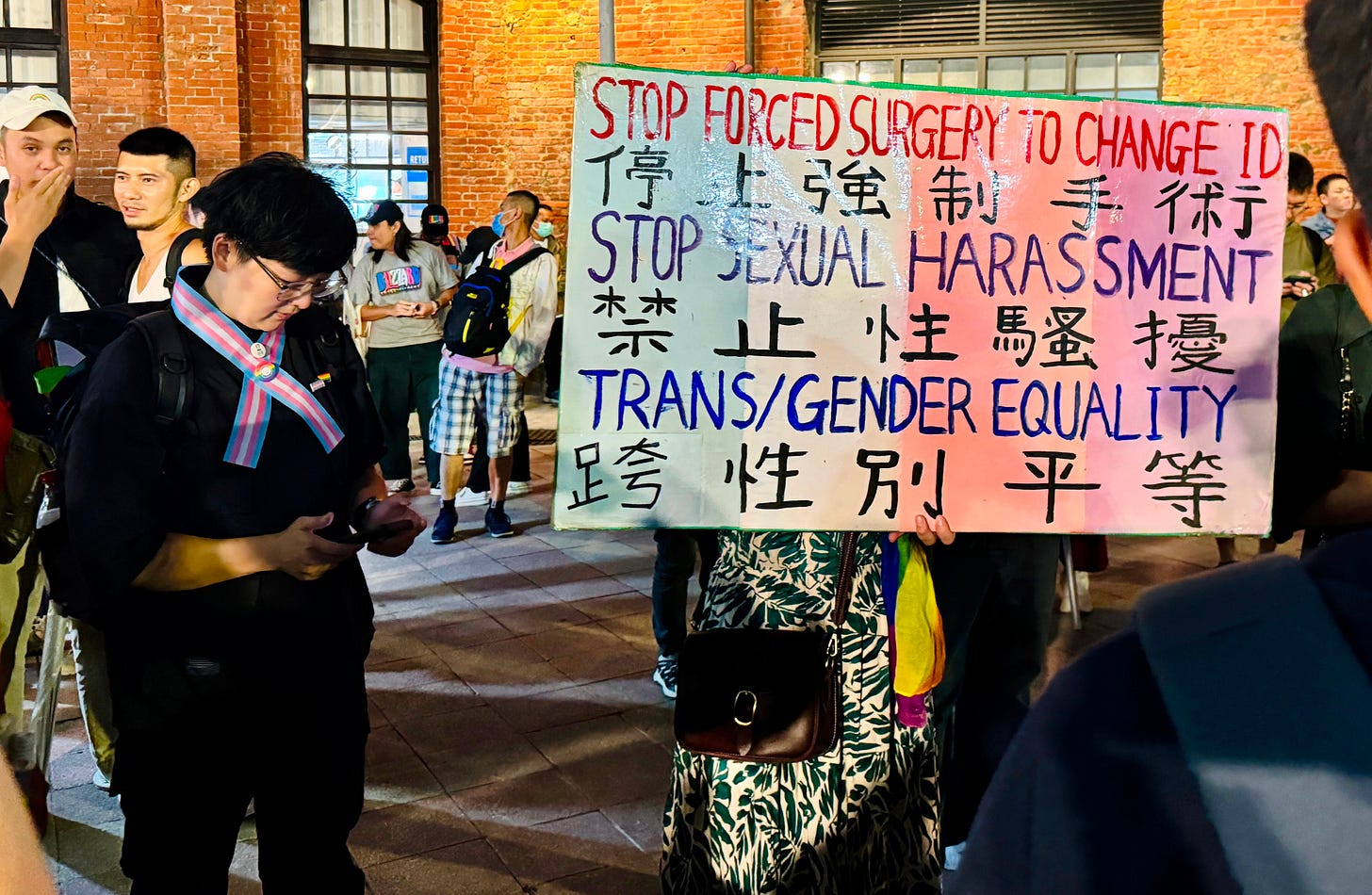🗣️ Our Voices, Our Votes: K 🗳️
"Discussions need to be based on real lived experiences instead of reacting to talking points about bathrooms or sports." - K, she/her, 25-34
As we get closer to GE2025, I have been thinking a lot about whose hopes, worries, and dreams we hold and whose we leave behind. Our Voices, Our Votes is my small attempt to make more space for LGBTQIA+ Singaporeans to share what is on their minds. This is an invitation to slow down, to listen a little more carefully to different lived experiences, and to stay open-hearted to what we might learn along the way.
Meet K (she/her), a young trans woman, learning how to move through a society that doesn’t always know how to hold space for people like her.
Our conversation wandered across many vulnerable places: the quiet ache of adulthood, the emotional weight of visibility, and the balancing act of staying both hopeful and realistic about change.
I admire K deeply. She dreams of classrooms where every student can feel seen, safe, and supported. That vision speaks to something I wish little Ben had, too.
I’m grateful for the thoughtfulness she brought to this conversation. And I hope you’ll take the time to sit with her words. There’s a lot here to hold and reflect.
Read this interview in sections, not wholesale. Reflect and hold that space
K (she/her), trans, 25-34
Q: How are you feeling about the upcoming General Elections? Is it still something on your radar, or have you emotionally checked out?
A: It’s definitely still on my radar. I’ve been keeping up with news from different sources.
Q: I know you filled in the survey about a week ago. Since then, have any of your thoughts on who you might vote for changed?
A: Nope, not really. Nothing has changed since I submitted the survey.
Q: You highlighted housing access, inclusive education, and workplace protections as your top issues. I’d love to hear more. What makes these three stand out for you?
A: Sure. So for context, I work in the education sector. It's a huge part of my everyday life, and I care deeply about providing safe spaces for queer kids in schools.
Right now, both the policy landscape and the school culture aren’t fully there yet. I will say there have been some small improvements since the repeal of 377A.
For example, the sexuality education curriculum now includes some content that acknowledges homosexuality. It’s presented in a way that says we shouldn’t discriminate based on sexual orientation.
But the way it’s taught still feels very externalized. It’s like, "Here is what homosexuality is," without really creating space for reflection. There’s no room for a student to go, "Wait, what if I’m feeling this way?" or "What if this applies to me?"
And when it comes to gender identity, the curriculum might say something like, "Some people’s gender identity doesn’t match their sex assigned at birth."
But again, there’s no room for real exploration.
NB: According to the Ministry of Education, sexuality education is taught ‘in the context of mainstream national values’ and ‘is anchored on Singapore’s prevailing family values and social norms’, which ‘majority of Singaporeans want to uphold.’ Sexuality Education teaches students what homosexuality is and the importance of mutual understanding, respect and empathy for everyone. - MOE Website
Q: So, even though sexuality and gender identity are mentioned, it’s still kept at arm’s length.
A: Exactly. The messaging is that these things exist and we don’t judge anyone. But it stops there. It doesn’t say, "Some of you might be feeling this way, and that’s okay." There’s no invitation to self-explore, especially for trans kids.
If a student wants to come out as trans, there are still so many barriers. Their IC might say one thing, but they’re told they have to wear the uniform assigned to their sex at birth. Even if there’s a little progress, the environment still isn’t safe for queer students to express themselves freely.
As an educator, I think that matters so much.
We’re shaping the future of this country, and if we want young people to thrive, they need to feel safe while they learn.
That’s one of the big reasons why inclusive education is one of the main issues I care about.
NB: In 2021, a trans student’s Reddit post about MOE allegedly had prevented her from obtaining a doctor’s referral letter to begin hormone replacement therapy went viral, and the school she was in, allegedly threatened her with expulsion. - TODAY
And after a combined statement from the Ministry of Health and MOE, denying that they did so. It prompted then Education Minister, Lawrence Wong, to weigh in, stating MOE’s main focus is “continuing to provide trans students with a conducive learning environment and to support their overall well-being.”
However. he also noted in the same speech in Parliament, “that issues of gender identity have become “bitterly contested sources of division in the culture wars in some Western societies”, and that Singapore should not allow such divisions to occur.” - TODAY
Q: I really appreciate how clearly you’re connecting these dots. On a more personal note, beyond your professional role in education, does the lack of inclusivity in schools affect you directly?
A: Definitely. I wasn’t out when I was schooling, so there was never really space to explore my identity. But when I got into university and began transitioning, that’s when I faced a lot of challenges.
There were issues because how I presented didn’t match what was on my IC, and unfortunately, some people used that as an excuse to be transphobic.

Q: Was that mostly coming from students or more from the administration?
A: It was the administration. My peers were generally supportive, but the school staff and processes were a different story. There was a lack of understanding around transgender identities, and even more so, a deep reluctance to deviate from official policies.
The NRIC sex marker became this rigid justification for everything.
People would say things like, “It’s against my values to use a name that isn’t on the school register,” and use that to refuse to acknowledge my identity.
NB: Local universities in Singapore have taken varying approaches to supporting transgender students in campus housing. NTU offers staff training on respectful interactions with transgender students, dialogue sessions for feedback, and access to counsellors with relevant expertise. Official correspondence still uses legal names for identity verification, though the university says it's moving toward a more inclusive communication approach.
SUTD has not received transgender-related housing requests but is open to accommodating them where possible, and allows preferred email name changes. NUS emphasized its commitment to an inclusive campus, with professional counselling and ongoing engagement to build a respectful environment. SMU emphasized its zero-tolerance stance on discrimination and efforts to educate student leaders on gender-inclusive language to ensure all students can participate fully in campus life. - CNA

Q: That sounds incredibly frustrating. So the barrier really starts from the way the state defines gender identity on official documents?
A: Exactly. If we want to make schools and workplaces safer for trans people, we need to start by easing the process of updating gender markers on official documents.
That one change has ripple effects everywhere. Small businesses, employers, even other public institutions often take cues from the government. If ICA says sex is binary and unchangeable, then everyone else follows suit.
That rigidity creates a lot of unnecessary hardship for trans people just trying to live their lives.
NB: The current requirements for legal gender recognition in Singapore are that the trans person’s genitalia must have been “completely changed from male/female to female/male genitalia”, with this confirmed via a genital examination by a locally licensed urologist, gynaecologist, endocrinologist or plastic surgeon.
These requirements were instituted in late 2017, without community consultation. Prior to that point, the wording of the legal provision required that a trans person had “undergone a sex change procedure”, and letters from the surgeons or hospitals that performed the surgeries were sufficient without the need for further examination by a separate doctor. - from TransgenderSG
Q: That makes so much sense. You’re actually the third person I’ve spoken to who brought up gender markers. It feels like a big issue, but one that hasn’t been fully explored or widely understood.
A: Exactly. It’s huge, but people don’t always realize how far-reaching the consequences are. Everything revolves around our ID in Singapore.
Even something like logging into SingPass shows how much of our lives are tied to it. Whoever takes up advocacy for this issue really needs to dig into it deeply.
Q: Thank you for explaining that so clearly. I want to return to the other two issues you flagged: workplace protections and housing access. Could you share more about what’s on your mind with them?
A: Of course. Let’s start with workplace protections. Recently, the new Workplace Fairness Bill was passed. But unfortunately, it explicitly excludes sexual orientation and gender identity as protected categories.
That means there’s no ambiguity, no wiggle room—it’s not protected.
Q: Why is workplace discrimination such an important issue for you personally and more broadly for queer communities?
A: Workplace discrimination matters because, right now, any institution that’s employing people in Singapore can technically discriminate against queer people — and there’s no legal recourse.
The state has no enforceable power when it comes to anti-discrimination in this area. That’s going to pose a real challenge for future legislators, especially if we want truly inclusive workplace policies.
NB: The ‘Workplace Fairness Bill’ was passed in Jan 2025, however it excludes LGBTQIA+ protections. The Ministry of Manpower said that the Bill is ‘just a start’, and LGBTQIA+ workers’ discrimination ‘is not tolerated’ and ‘will continue to be handled under ‘Tripartite Guidelines on Fair Employment Practices’ (TGFEP). - CNA
More specifically, as a trans person in Singapore, I’ve had to face these issues myself when trying to get a job. I’ve experienced discrimination in the way I was posted. I felt decisions were made based on my transgender status rather than merit.
There were justifications given, but at the end of the day, it wasn’t based on qualifications or ability.
And in the workplace itself, I’ve had people complain about which toilets I use, like they somehow feel the need to get involved in that just because I’m transgender.
And the hardest part? There’s nothing I can stand on.
There’s no protection. No legal safeguard. So when people make these accusations or complaints, there’s nowhere for me to turn. That’s the reality right now.
That’s why the recent Workplace Fairness legislation has been top of my mind. The fact that it explicitly excludes sexual orientation and gender identity from its list of protected classes — it says a lot.
And the people who will enter Parliament after this next election are the ones who will have the power to amend that bill. They’ll be responsible for deciding if and when our laws evolve to reflect the lived experiences of queer people.
NB: Transgender people face significant employment discrimination both during the hiring process and in workplaces.
Transgender graduates have an unemployment rate of 11%, almost four times higher than Singapore’s overall rate of 3% over the same period.
Over 65% reported negative experiences in the workplace related to their transgender status, such as harassment and verbal abuse. - TransgenderSG, Transbefrienders, The Courage Lab
Q: The government has said there might room for ‘expansion’ in the Workplace Fairness Act. Was that reassuring to you?
A: I don’t doubt that it could be the case. Historically, Singapore does things very consciously and cautiously. And yes — this is the first time we even have workplace fairness legislation at all, so in a way, that’s progress.
But I don’t disagree with what the current government is saying: that they view queer rights as a contentious social issue that hasn’t been “settled.” So they want to leave it to the future. But that has very real consequences for queer people living here now.
That narrative doesn’t acknowledge the urgency.
They say there’s room for inclusion in the future, but how far into the future are we talking? Are we going to have to wait one or two more generations of queer people growing up in Singapore, feeling like they don’t fully belong? Are we going to carry this on for the next hundred years? Or is change going to happen within the next five?
And that’s why this election matters. Because the people who enter Parliament are going to be the ones debating these issues.
Q: You shared earlier that it feels like LGBTQIA+ issues won’t be meaningfully addressed anytime soon. Could you say more about what’s behind that feeling?
A: Yeah, so this is just my own interpretation, but from what I’ve seen, the current government seems to view LGBTQIA+ inclusion — or even just queer rights in general — as a really contentious social issue.
And that’s not entirely wrong. There are vocal groups that are openly against queer rights, and I think because of that tension, the government avoids doing anything too public.
They don’t want to rock the boat or upset the people who are anti-LGBTQIA. So what ends up happening is, they avoid taking any clear or bold stance.
That leaves us in this place where if we’re going to see any real progress, it feels like we have to somehow get these opposing groups on board. Like we need to build a bridge between the queer community and people who, for whatever reason, are against us.
That’s the frustrating part. I don’t think anything is going to move forward until things are more socially “settled” — until there’s broader agreement.
NB: The Ipsos Pride 2024 study, conducted across 26 countries including 500 respondents aged 21-74 in Singapore, highlights a strong trend of growing support for LGBTQ+ rights in Singapore, particularly among Gen Z and Millennials. For instance, 72% of Gen Z and 69% of Millennials believe same-sex couples can raise children successfully, compared to 44% of Gen X and 40% of Baby Boomers.
This generational divide is also evident in support for same-sex marriage and adoption rights. Among the 32% of respondents in Singapore who believe that same-sex couples should be allowed to marry, 41% of Millennials and 40% of Gen Z agree with this statement. In contrast, only 25% of Gen X and 16% of Baby Boomers share this belief. - Ipsos
Q: It sounds like, from your view, social acceptance is being treated as a precondition for policy change. Is that something you agree with?
A: Not really, no. Philosophically, I don’t think that’s the way it should work. But it’s the way I’ve seen our government behave. Especially when it comes to LGBTQIA+ issues — it’s like social acceptance has to come first before they’re willing to act on policies.
Q: And how does that sit with you personally? What does that mean for how you think about change?
A: Personally, I think we need to be working on bridging the gaps that exist right now. There’s so much misinformation out there.
Some of it is coming from politically motivated sources, some from overseas, and some just from general anti-queerness that’s being spread and picked up locally.
People genuinely don’t understand what’s happening with trans rights in Singapore.
For example, a few months ago there was a parliamentary question (PQ) about puberty blockers for transgender children here. But puberty blockers aren’t even prescribed for trans kids in Singapore. So that question didn’t make any sense to begin with.
NB: In Singapore, gender-affirming care for minors (under 21) requires the consent of both parents, even if those parents are separated. There is no minimum age to be evaluated by a psychiatrist for gender dysphoria (which is required for HRT), although parental consent will be required for those under 18. - TransgenderSG
The fact that it was even asked shows how misinformed some policymakers or their sources are. And that misinformation is likely being influenced by what’s circulating in other countries — especially the US and UK. It trickles into our local context, even though our systems are very different.
NB: The UK’s Supreme Court recently ruled on the legal definition of a woman. The definition of sex under the Equality Act ‘makes clear that the concept of sex is binary, a person is either a woman or a man’. The ruling outraged trans and the wider LGBTQIA+ community, where they held protests across the UK to fight back against the ruling. - BBC, TIME, AP News
The climate in the US is not better. Over 850 anti-LGBTQIA+ bills were filed in 2025 so far in the US. 867 bills were introduced just targeting transgender people. 122 bills would seek to ban gender-affirming care for some segments of the trans populations. Another 77 seek to bar trans people from certain bathrooms - The Advocate, Erin In the Morning Substack
Q: So when those kinds of narratives take root here, it sounds like they don’t just affect public opinion — they influence policy conversations too.
A: Exactly. That’s why I think the government is so hesitant. They’re afraid of taking a side and dealing with the backlash. But the thing is — they have to.
They can’t just keep trying to play both sides forever.
That’s what I think personally. But whether they will actually do it? I don’t know.
Q: Thanks for sharing all that. When thinking about the elections, how do you hold space for both your hopes and the need to be realistic about what’s possible?
A: Yeah, absolutely. I feel that a lot too. It’s like we just want to live our lives — that’s it. But in order to get equal rights, we have to be strategic.
We have to know where to push, how to push, and when. And that kind of thinking becomes second nature.
Q: You mentioned earlier that one of the deciding factors in who you’ll vote for is whether candidates show stronger community advocacy. Tell me more about why that’s important to you.
A: For me, that’s actually more important than queer rights alone. Like yes, queer issues are a big part of it. But I also think about how our world is changing.
Recently, PM Wong gave a speech about tariffs, the shifting global order, and all these major geopolitical changes. When I look at what’s happening around the world — so many countries having elections, power shifting — it’s clear that the global rules-based order we used to rely on is breaking down.
There used to be this idea that if everyone played by the same rules, we’d all be okay. But that’s not true anymore. Countries are bending the rules for their own interests, and Singapore has always said we’ll do what works best for us.
That’s why I think we need to double down on building strong communities here.
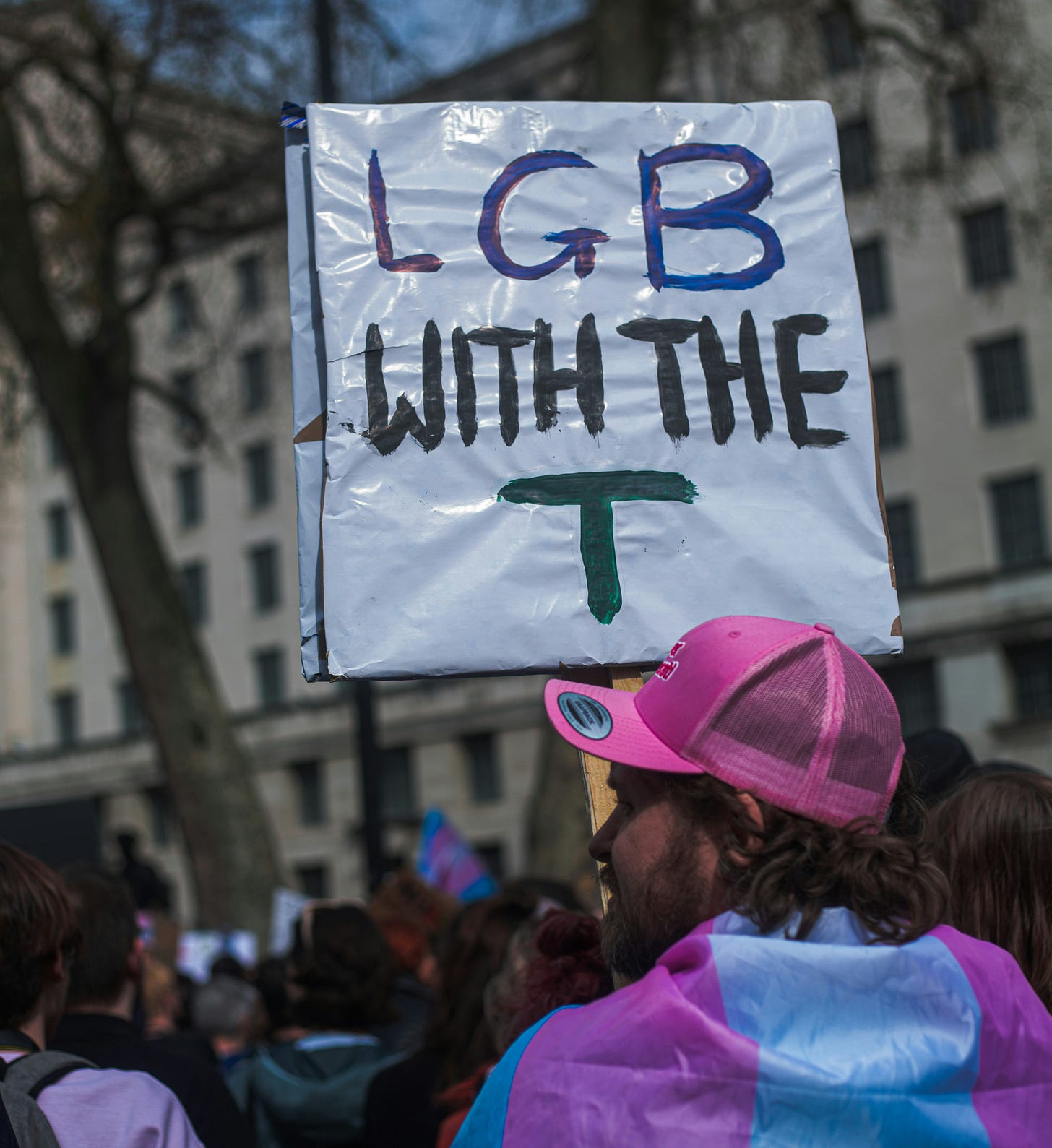
Q: So instead of focusing only on policy wins, you’d rather see more attention paid to deepening our social fabric and investing in our bonds with each other?
A: Yes, exactly. I’m looking for leaders who understand that.
Right now, the world is pushing us toward more individualism. It’s like we’re being told to live in our own flats, go to work, come home, switch on Netflix and just zone out. But that kind of life disconnects us from each other.
And I don’t want to live in a society that’s so atomised.
I want to see candidates who value community — who know that our strength comes from our relationships with one another, not from isolation.
Q: There was quite a bit of talk leading up to this election about the possibility of a queer candidate being fielded. What did that moment feel like for you?
A: When I first heard the rumors, it felt nice for a moment. Kind of like, oh wow, is this actually happening? I could see the strategy behind it too. The party probably had certain intentions in mind.
But then the news broke—either yesterday or earlier today—that it wasn’t going to happen after all. They’re going ahead with a brand-new slate instead. And honestly, I understand why.
From conversations within the queer community, we saw just how intense the backlash was. It spooked the ministers.
And that kind of reaction is one of the things I’m really concerned about—not just for this election, but for the next five or ten years.
The anti-LGBTQIA+ groups are getting louder, more radical, more emboldened.
So when we talk about building community, it can’t just be about connecting within our own circles anymore.
We also have to think about how—or if—it’s even possible to engage with those who are actively hostile. And I don’t know how to do that. That tension is really hard to sit with.
But here’s the thing. The way our government tends to work is that social consensus needs to come first before any sort of policy change. So if that’s the case, nothing’s going to move unless we somehow manage to ease the backlash and shift public perception.
And right now, that feels like an incredibly uphill battle.

Q: Do you think fielding a queer candidate could have helped start to build that bridge, even if just symbolically?
A: Maybe. I think it could have been a kind of gesture, like, hey, we see you, we’re listening, we recognize you. It might have resonated with the queer community on that level.
But honestly, I don’t think the candidate would have been allowed to speak openly about queer issues in Parliament.
There are internal workings and limits that we’re just not privy to. So in that sense, it didn’t give me any real hope that it would shift things in a meaningful way.
I don’t believe it would have pushed queer rights forward any more than where things already stand.
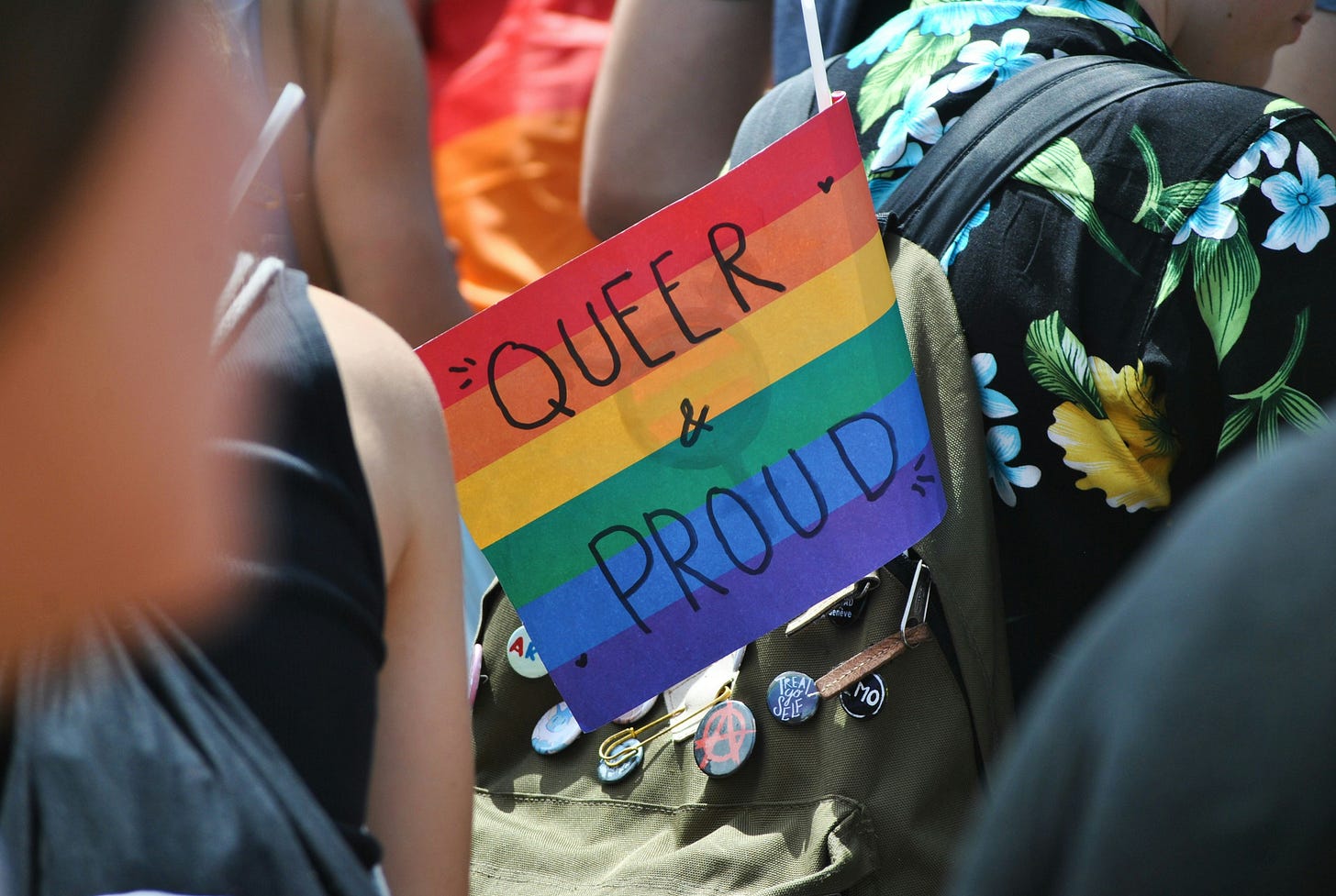
Q: You mentioned earlier that growing visibility can bring backlash. What worries are on your mind as we head into this election season?
A: Yeah, I am worried. I think the biggest challenge we’re facing right now is this backlash, and honestly, it could have been even worse if Deryne had been fielded as a candidate in her full identity. I do understand why that decision was made—to protect the community.
There’s still so much anti-queer propaganda and misinformation out there about who we are, about our identities.
And unless we deal with that first, I don’t think we’ll be able to make real progress on queer rights. So that is something I carry with me—a kind of worry, but also a recognition that this pattern is predictable.
As visibility grows, backlash grows alongside it. That’s just how it works.
But it also means we’re making progress. More visibility means more awareness, more stories, more presence.
The big question now is: how do we move forward? How do we start bridging the divide so we can truly work toward queer acceptance?
Because going back into the closet? That’s just not something we can do. Not anymore.
Q: One of the questions you selected from our survey was, “What does a better future look like for you as an LGBTQIA+ person in Singapore?” I’d love to hear more about your vision.
A: To me, a better future is one where we can be open about who we are. And more importantly, it’s a future where we’re able to navigate difficult conversations and conflicts in healthier, more productive ways.
It’s not just about being seen or heard—it’s about reducing polarization.
I want us to be able to talk about the specific needs of transgender people, for example, without the conversation being hijacked by misinformation or fear-mongering.
We need to get to a place where we’re discussing real lived experiences instead of reacting to talking points about bathrooms or sports.
That’s not where the real pain or the real questions are.
A better future is one where the humanity beneath all our identities is seen clearly and with compassion. And honestly, I believe that’s the most likely path we can take if we want meaningful queer rights in Singapore.
Q: If you had a magic wand—and say you were elected into political office tomorrow—what would be your top priority? What’s the first thing you’d want to change or champion?
A: Honestly, I don’t know if I have all the answers. I wouldn’t know where to begin solving some of these issues. But if I had to focus on one thing, it would be the growing social divisions caused by misinformation.
So much of the harm comes from what people think they know, based on things they’ve read online or heard from others—not from real experiences. The queer community has really felt the brunt of this, but it’s not just about us.
We’re living in a time where two people sitting next to each other on a train could be living in completely different realities. They don’t even agree on basic facts.
That makes it so much harder to do meaningful community work or build a shared future.
If I were in office, I’d want to tackle that disinformation divide. I just don’t know how yet. It feels like a novel problem that no one—not even globally—has figured out how to solve.
Q: It does feel harder these days to have open conversations, especially when so many opinions are shaped by what people see online rather than by real-life experiences. What do you make of that shift?
A: Exactly. Back then, if you disagreed with someone or were uncomfortable with queerness, it might have been because of one specific person or situation. Maybe you just hadn’t met a queer person before. But now, people can form really strong opinions about communities they’ve never even interacted with.
It’s like the Internet creates this cloud of misinformation that feels real to people. And that’s incredibly difficult to challenge.
How do you change someone’s mind when what they believe is built entirely on ideas, not experiences or agreed facts?
This isn’t a uniquely Singaporean issue. It’s global.
But it definitely affects how we talk to each other and whether we can move forward together.
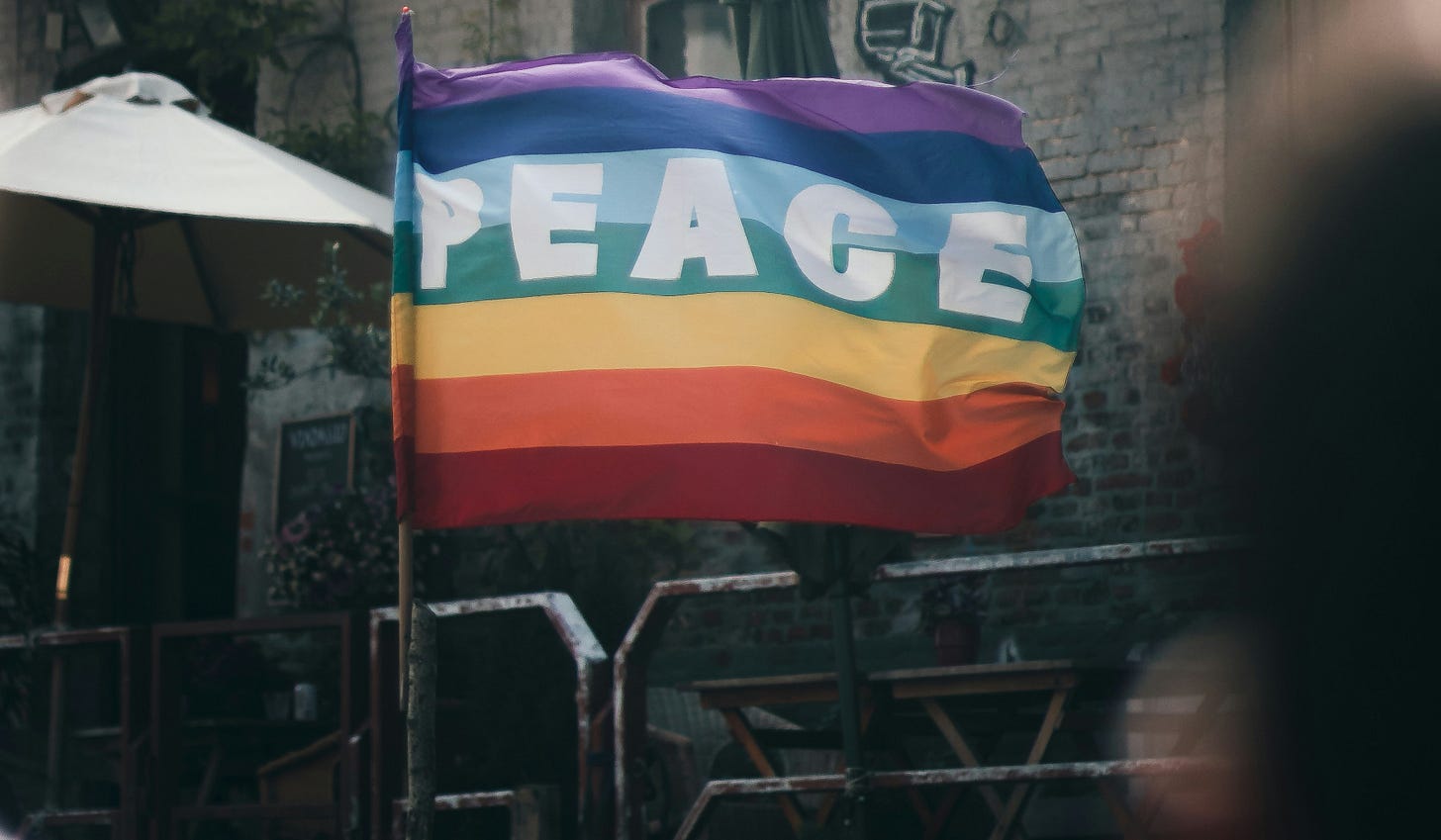
I’ve been sitting with this after our conversation ended: K wants to build classrooms that include everyone, even after the education system let her down and made it harder for her to thrive.
That kind of extraordinary care doesn’t come from nowhere. It comes from knowing what it’s like to feel left out, and still choosing to create space so others don’t have to go through the same.
Have you had that experience if you’ve ever had someone in your school years, a teacher, a counselor, even someone at the general office, who saw you for who you were. Someone who made things a little easier just by being kind, by making room.
As adults, those moments matter more than we think. They don’t have to fix everything, but they help us breathe a little easier.
I hope that our schools here can be better for all students, including LGBTQIA+ or questioning students. Not more rigid rules or moulds to squeeze into, but more people who understand that students are still becoming, still figuring things out. And they need space, not shame. Care, not control.
Imagine what kind of future we might grow into if we just gave young people that room.
Disclaimer:
The views and opinions expressed in these interviews are those of the individuals themselves and do not necessarily reflect my own. This series aims to amplify a diversity of voices within the LGBTQIA+ community. No single conversation can represent the full breadth of our lived experiences.
Once again, my heartfelt thanks to all the interviewees for trusting me with their stories.












